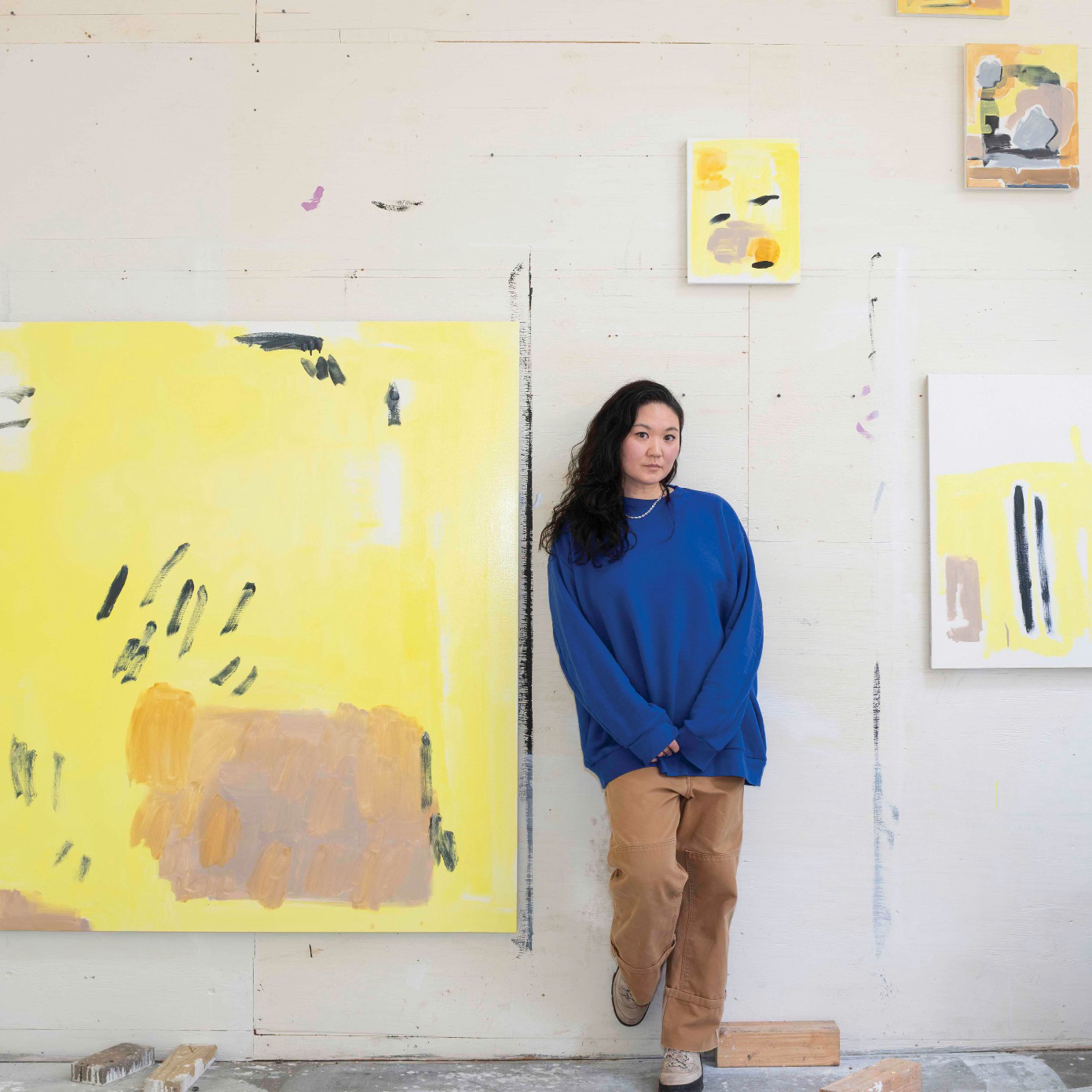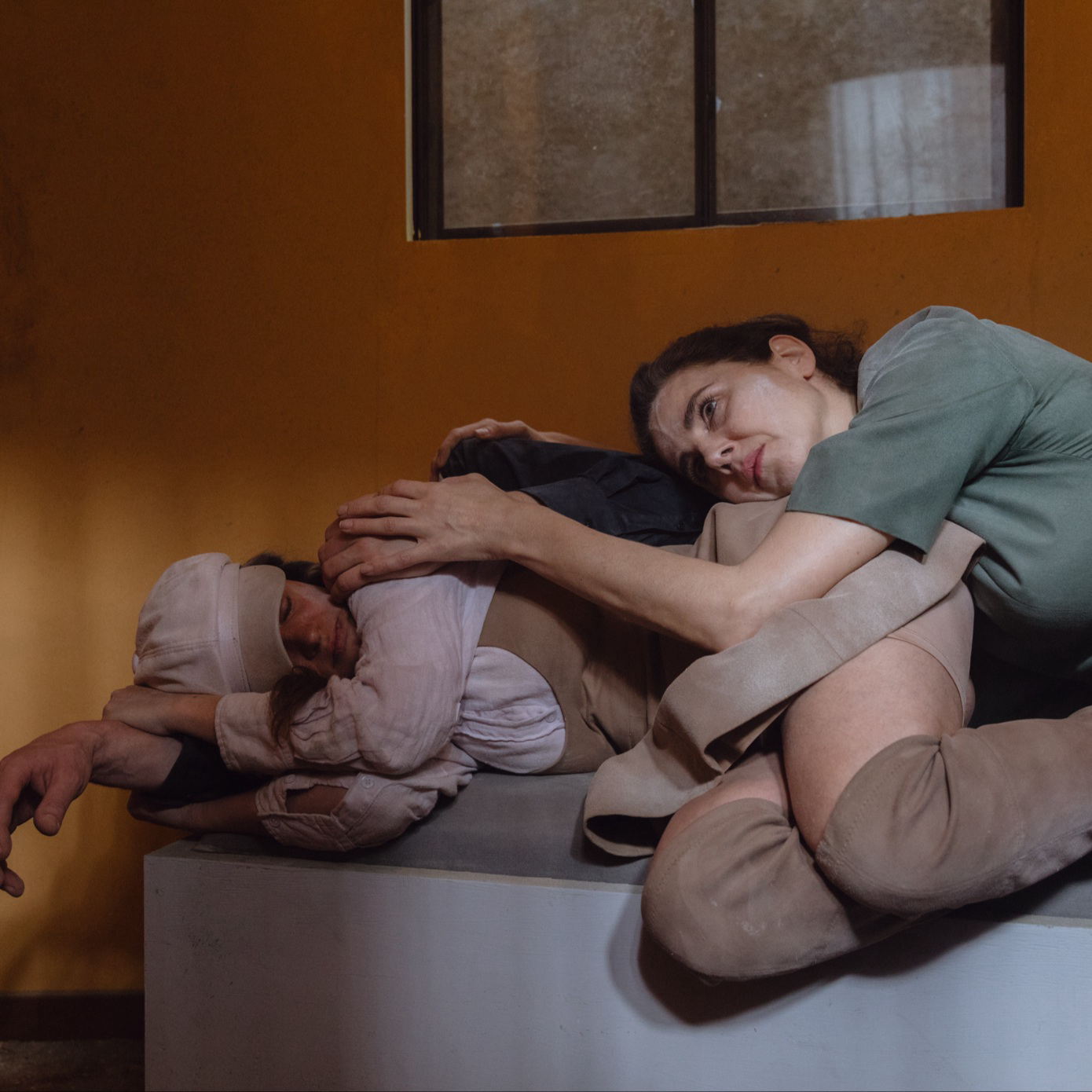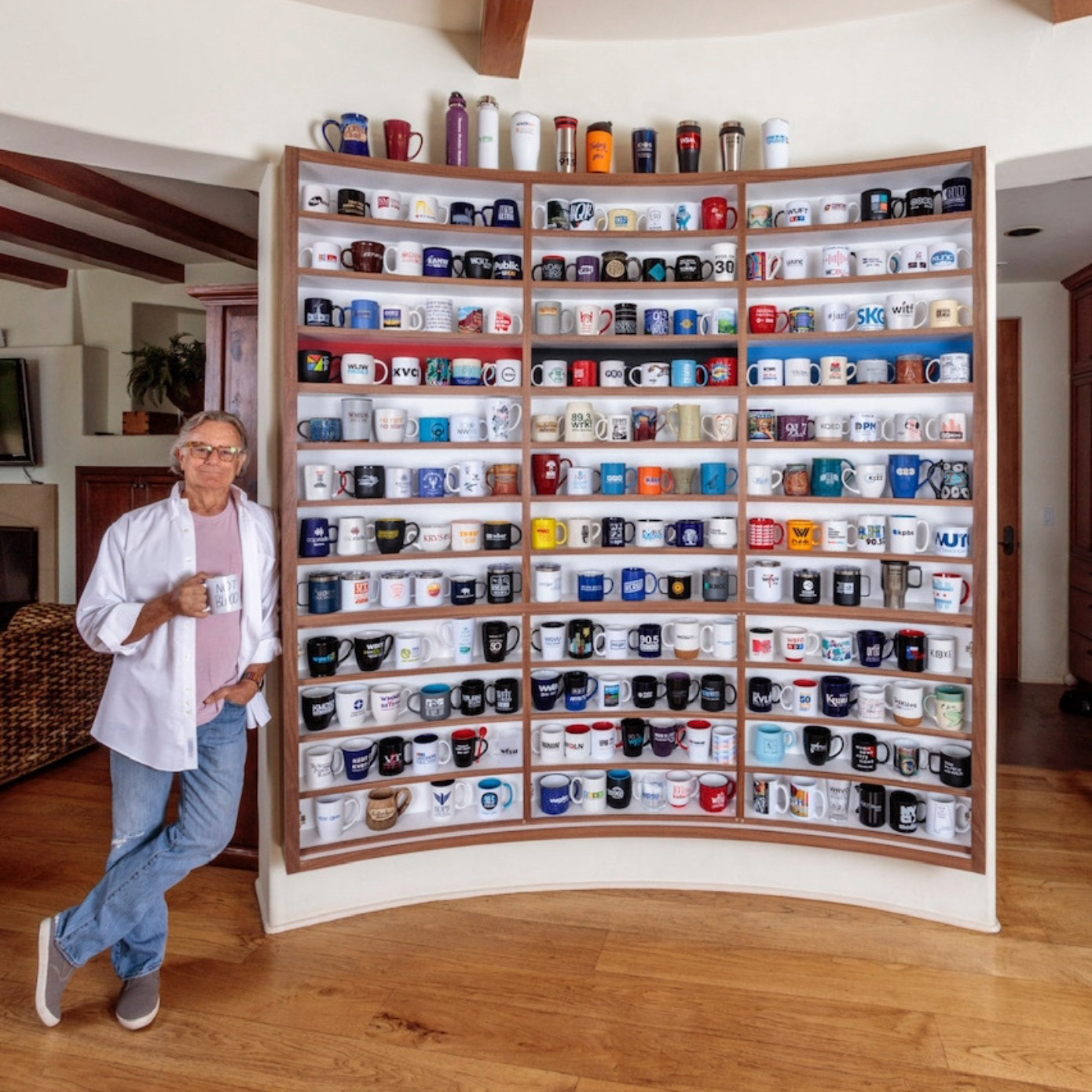
When Nigerian-born artist Njideka Akunyili Crosby opens the door to her East L.A. studio, it’s not the optical overload of her densely collaged figurative paintings pulsing from the walls that first catches my attention. Nor is it the box of gigantic grapefruit picked fresh from her Highland Park yard on one of the work tables. Or the hundreds of vintage reference images of family, friends or socialites in the pages of Ovation magazine (Nigeria’s analogue to US Weekly) that are scattered about the floors of this former furniture shop. No, it’s two words printed down the left side of a faded blue T-shirt she’s wearing: “Slow Down.”
Wishful thinking for the 33-year-old rising star, whose increasingly coveted works on paper can’t leave the studio fast enough. Often built from family or staged photos shot with her husband, they’re rendered in acrylic shaded with pencils, which are then layered with hundreds of acetone photo transfers (of, say, Nigerian star Genevieve Nnaji, fashion ads from Lagos-based designer Maki Oh, or street photos the artist snapped on trips home), as well as a diminishing supply of ceremonial aso-ebi fabrics, from her brother’s wedding or her mother’s senate campaign. Within the process, Akunyili Crosby’s materialist mash-ups juxtapose everything from African dictators to American pop, the influence of blaxploitation movies on Nigerian street style to British colonialism and the works of Vilhelm Hammershøi to Josef Albers via seductive patchworks whose unique visual language winks at the art historical while simultaneously writing a new chapter.
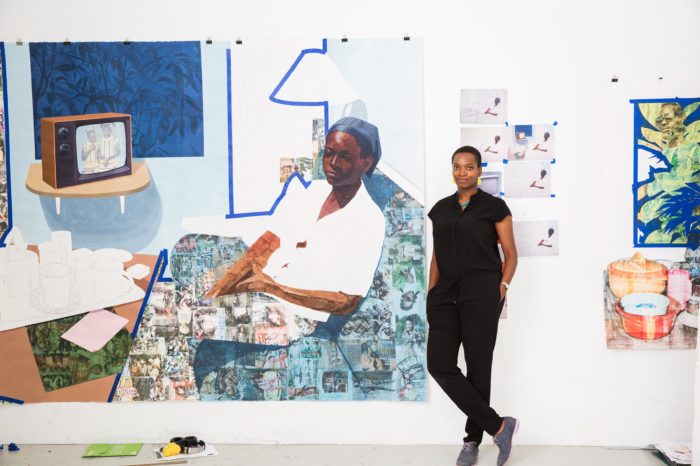
In the past year alone, Akunyili Crosby—whose first name is pronounced “nnn-jee-deh-car”—has participated in several group shows (including the Whitney’s current portraiture survey, “Human Interest”) and five solo efforts (at L.A.’s Hammer Museum, Mark Bradford’s Art + Practice, the Norton Museum of Art, the Whitney’s billboard project and London’s Victoria Miro Gallery, where she’ll make her solo European debut in October), while earning a spot on Foreign Policy’s 2015 list of the Leading Global Thinkers.
“There’s only so much I can make,” she laughs, admitting she took on an assistant for the first time in her career to help prep for the highly anticipated London exhibition. Pointing to a massive blank sheet of French cotton paper, affixed with a black and white portrait of her aunt wearing a flower dress while sitting atop the lap of Akunyili Crosby’s maternal grandmother, she adds, “Sometimes I start with just one idea, sometimes I know what the whole piece will be, but for this one I just know that I want to have this image in it.”
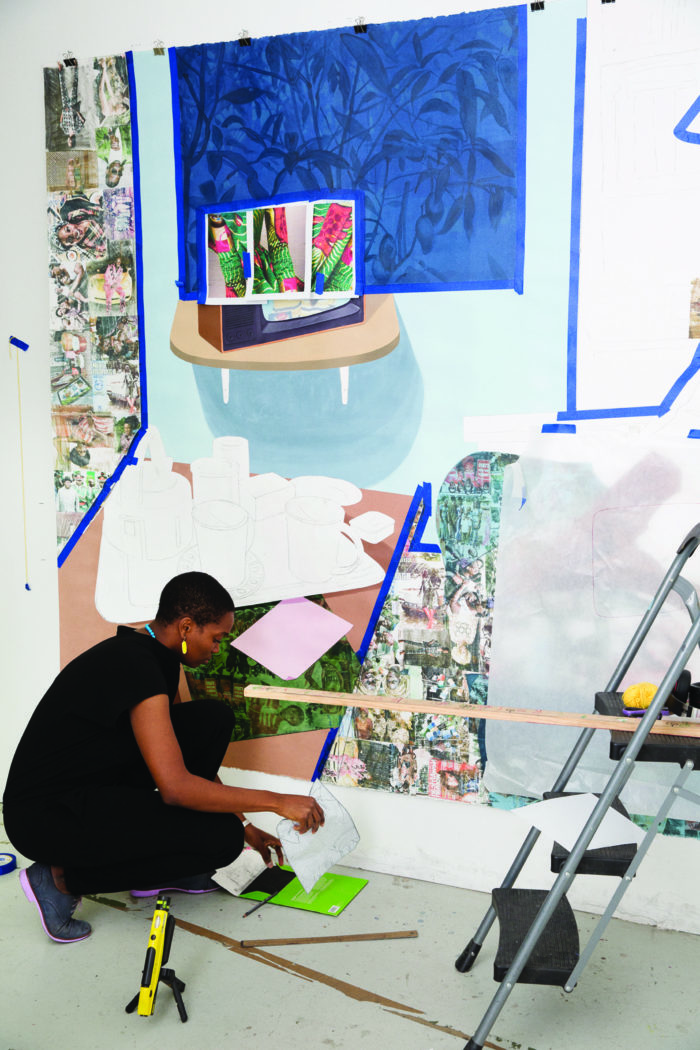
Much like her paintings, Akunyili Crosby’s life is a cross-cultural layer cake: She grew up lower-middle class and Igbo (indigenous people from southern Nigeria) in a provincial eastern town only to leapfrog into the high life in Lagos and Abuja when her mother went from being an unknown professor of pharmacology to helming Nigeria’s Food and Drug Administration and, later, the Ministry of Information. After moving to the U.S. at age 16, Akunyili Crosby attended Swarthmore, where she met her future husband, an American sculptor. The two then moved to L.A. after he got accepted to CalArts.
“It’s a weird space when you grow up poor then end up with this other class because you don’t really feel like you fit anywhere,” says Akunyili Crosby, who hopes to reconnect with humbler roots through a 2017 textile project which will incorporate a custom commemorative photo fabric of her design invoking her wedding (which was actually attended by the former Nigerian president Goodluck Jonathan) that will later be reinterpreted by Mexican artisans. “What happens if I have this traditional thing created this whole other way, what would that translation do?” she asks. “That could add a whole other fascinating next level.”

